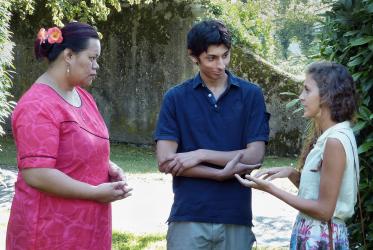Displaying 1 - 14 of 14
Film “Tel Aviv on Fire” wins Interfilm award
12 September 2018
WCC general secretary reflects on peace in Palestine and Israel
20 September 2016
WCC Executive Committee works toward a future of peace and justice
19 November 2015
“European solidarity must be strengthened”
29 October 2015
Youth build multi-faith community in Bossey
28 August 2013






